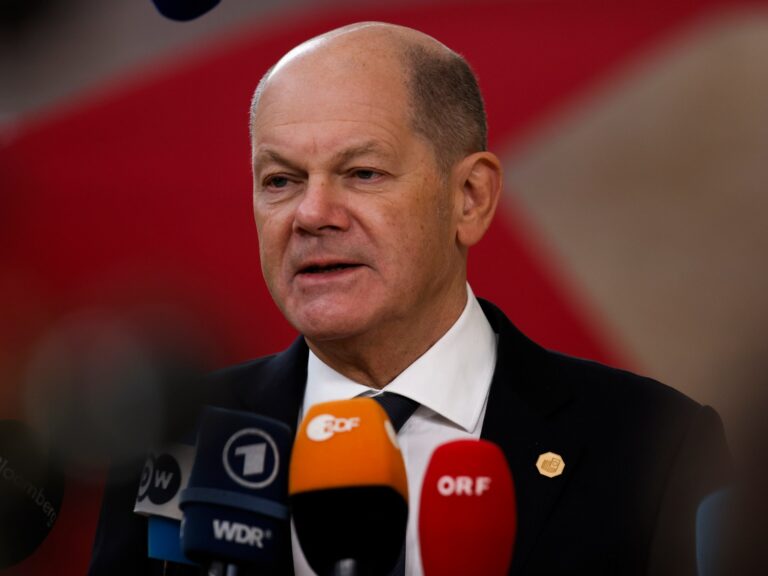France will hold a general election in July, with opinion polls showing President Emmanuel Macron’s party struggling.
German Chancellor Olaf Scholz said he was “concerned” about a possible far-right victory in France’s next parliamentary elections.
President Emmanuel Macron’s party is trailing far behind with less than two weeks to go until the first round of early elections he called after suffering heavy defeats to the far-right in European opinion polls.
Germany’s far-right Alternative for Germany (AfD) party also gained seats in this month’s European Parliament elections, but Scholz’s ruling coalition struggled.
“I am concerned about the French elections,” Scholz told public broadcaster ARD in his annual summer interview.
“And, I, [Marine] “Le Pen will win the election if she says so, but it is the French people who will decide,” he added.
Protests spread in France
Thousands of people have marched across France in protest against the far right since President Macron called the elections.
On Saturday, protesters dressed in purple and carrying signs with messages such as “Push back the far right, not our rights” marched from Place de la Republique in central Paris to Place de la Nation in the east.
With the National Rally (RN)’s approval rating at around 35 percent, protesters feel the need to highlight the results of the far-right’s victory.
“We need to remind people that those who spoke about ‘comfort abortions’ are the same people who have always attacked family planning services,” Morgane Legras, a nuclear engineer and feminist activist who took part in a demonstration joined by thousands in Paris, told AFP.
Other rallies were held in around 50 cities across France.
The country’s two-round electoral system makes it difficult to predict which party will ultimately win a majority in the lower house and assume the prime ministerial role, the second most powerful post after President Emmanuel Macron.
Opinion polls predict that Mr Macron’s ruling coalition will come third in parliamentary elections on June 30, followed by a second round on July 7, behind Ms Le Pen’s far-right National Front party and a new left-wing coalition.
The RN has garnered unprecedented levels of support after a decades-long “dememonization” campaign to distance its image from its roots, which include a co-founder who was a member of the Nazi Waffen-SS paramilitary group.
But the core of the RN’s message remains hostility towards immigrants, Islam and the European Union.

